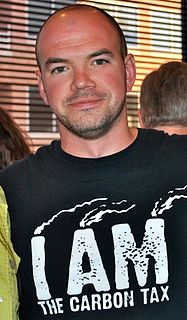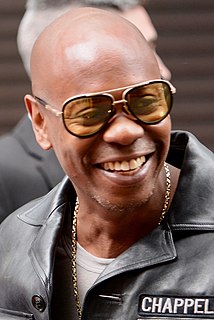A Quote by Rob Bell
Many people confuse religion with God and walk away from them both. The point isn't Christianity, the point is being a Christian.
Related Quotes
Christians have always tended to transform the Christian Revelation into a Christian religion. Christianity is said to be a religion like any other or, conversely, some Christians try to show that it is a better religion than the others. People attempt to take possession of God. Theology claims to explain everything, including the being of God. People tend to transform Christianity into a religion because the Christian faith obviously places people in an extremely uncomfortable position that of freedom guided only by love and all in the context of God's radical demand that we be holy.
Bypasses are devices that allow some people to dash from point A to point B very fast while other people dash from point B to point A very fast. People living at point C, being a point directly in between, are often given to wonder what's so great about point A that so many people from point B are so keen to get there and what's so great about point B that so many people from point A are so keen to get there. They often wish that people would just once and for all work out where the hell they wanted to be.
The sum of the whole matter is this: He who is one in will and heart with God is a Christian. He who loves God is one in will and heart with Him. He who trusts Christ loves God. That is Christianity in its ultimate purpose and result. That is Christianity in its means and working forces. That is Christianity in its starting point and foundation.
Even today many educated people think that the victory of Christianity over Greek philosophy is a proof of the superior truth of the former - although in this case it was only the coarser and more violent that conquered the more spiritual and delicate. So far as superior truth is concerned, it is enough to observe that the awakening sciences have allied themselves point by point with the philosophy of Epicurus, but point by point rejected Christianity.
I am a Christian because of that moment on the cross when Jesus, drinking the very dregs of human bitterness, cries out, My God, my God, why hast thou forsaken me? (I know, I know: he was quoting the Psalms, and who quotes a poem when being tortured? The words aren’t the point. The point is he felt human destitution to its absolute degree; the point is that God is with us, not beyond us, in suffering.)
Religion is much more than language, but to be Christian does mean speaking Christian for most people. The language many of us use has contributed to the crisis in Christianity in North America. Traditional Christian language is becoming less familiar to millions of people. The language is frequently misunderstood by people.
Liberal Christianity, of course, has enemies, but they are everyone's enemies - sexism, racism, homophobia. But liberal versions of Christianity, which can be both theologically and politically conservative, assume that what it means to be Christian qua Christian is to have no enemies peculiar to being Christian.
My spiritual path has largely been Christianity - a label that I embraced and then rejected and have partially embraced again, as my understanding of Christianity has changed over time. When I accepted the mainstream, dogmatic definition of Christianity there came a point when I had to say, "Well, if that's what a Christian is, I'm not one."
RELIGION is one's opinion and belief in some ethical truth. To be a Christian is to have the religion of Christ, and so to be a believer of Mohammed is to be a Mohammedan but there are so many religions that every man seems to be a religion unto himself. No two persons think alike, even if they outwardly profess the same faith, so we have as many religions in Christianity as we have believers.
My interest is to point out to you that you can walk, and please throw away all those crutches. If you are really handicapped, I wouldn’t advise you to do any such thing. But you are made to feel by other people that you are handicapped so that they could sell you those crutches. Throw them away and you can walk. That’s all that I can say. ‘If I fall....’ - that is your fear. Put the crutches away, and you are not going to fall.
True religion is when you serve God to get nothing else but more of God. Many people use religion as a way of getting something else from God they want-blessings, rewards, even escape from judgement. This is wearisome to us, and to God. But when God is His own reward, Christianity becomes thrilling. Sacrifice becomes joy.
The incipient magician will confess his faith to a universal religion. He will find out that every religion has good points as well as bad ones. He will therefore keep the best of it for himself and ignore the weak points, which does not necessarily mean that he must profess a religion, but he shall express awe to each for of worship, for each religion has its proper principle of God, whether the point in question be Christianity, Buddhism, Islam or any other kind of religion.
It shouldn't be difficult, then, to make the transposition at this point into the early Christian vision of Jesus and the Spirit and the way in which the material world is both celebrated and renewed through their work. The Jewish basis for the early Christian patterns of belief and behavior is clear. It is important that God's people are embodied, because God made this world and has no intention of abandoning it. The material of creation is a vessel made to be filled with God's new life and glory, even though the transformation may involve suffering, persecution, and martyrdom.



































